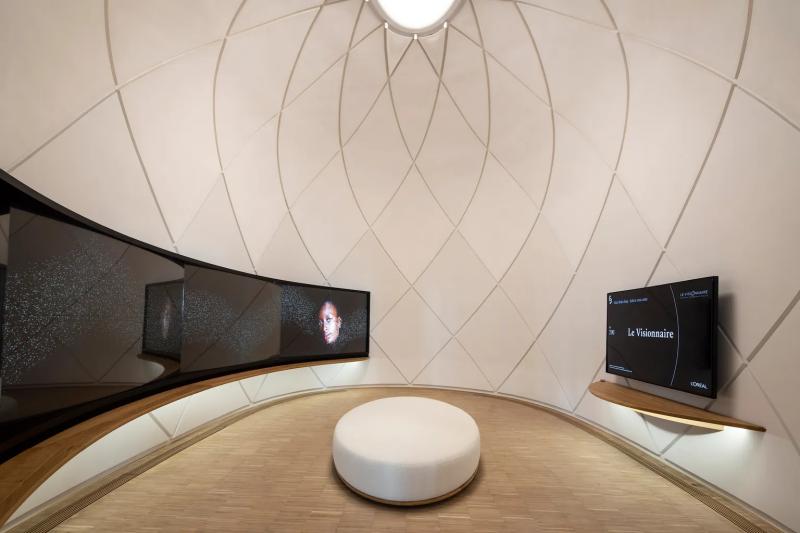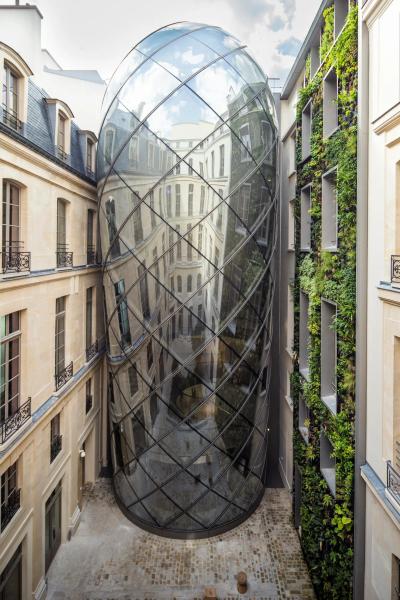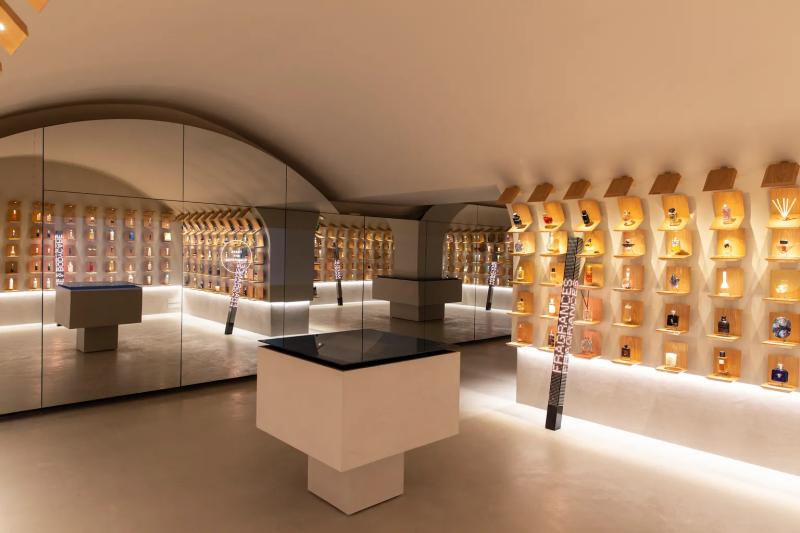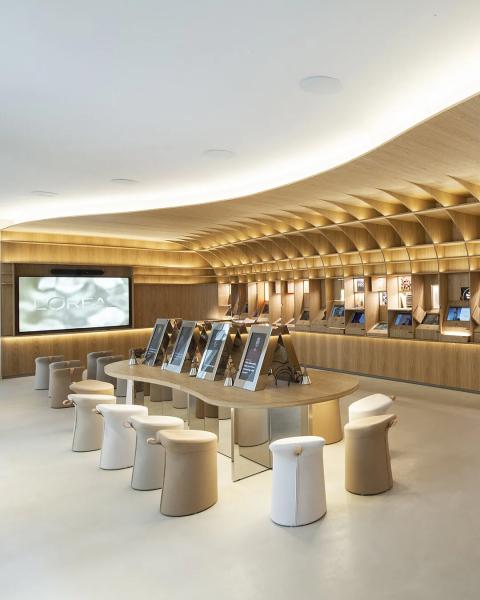Beauty giant L’Oréal launched a new creative hub in Paris that includes an AI-powered tool for following—and perhaps creating—trends.
Stephanie Hirschmiller•4 min read
Your Web3 Gaming Power-Up
Enjoy exclusive benefits with the GG Membership Pass
Decrypt’s Art, Fashion, and Entertainment Hub.
Discover SCENE
During Paris Fashion Week, French beauty giant L’Oréal inaugurated Le Visionnaire, a new creative hub in the French capital that harnesses artificial intelligence (AI) and state-of-the-art technology to help forge the L’Oréal of the future.
A five-story mirrored capsule, recalling an upside-down test tube, is nestled between two adjoining 18th-century buildings. At its heart is an enormous ovoid form, which houses an AI-powered digital forecasting tool dubbed the Visionary Wall.
“It’s a way of monitoring trends and a source of inspiration,” L’Oréal project manager Cristina Parma told Decrypt of its swathe of touchscreens. Unlike the “cold data” of an archive, she explained, the content is dynamic and features new and relevant information.


“Employees can go there to collect sources that form the basis of brainstorming and inspiration for strategic thinking about new products and retail experiences,” she said.
Parma said that the AI works on theme-based waves, allowing users to create a kind of mood board. “We know that beauty is connected with fashion, with food, with design, and with travel, so we selected a number of themes that people can fix or change,” she said.


Once a theme has been chosen, the AI proposes a mix of sources “on a semantic and chromatic basis,” she added—that’s to say, meaning and color.
In effect, the tool has been conceived as a cultural barometer—because, according to Parma, L’Oréal must always be “in a sort of active listening posture to be able to observe behaviors, needs, and dreams of our clients.”
The software program was developed for L’Oréal by Local Projects, an American company that specializes in interactive museums. The idea drew on a 40-foot touchscreen the firm designed for Ohio’s Cleveland Museum, where visitors can curate a personalized tour based on colors or concepts.
Elsewhere in Le Visionnaire is an extensive multimedia archive consisting of individual stations kitted out with screens, and a brand room housing the group’s best-known products. There, projections are thrown onto the vaulted ceiling while touch-activated walls become screens for playing campaign footage.


Such spaces deploy Bluetooth technology, which sends selected content directly to an employee’s email account when their smartphone is placed on a dock. The system is linked to the virtual pass they use to swipe into the building.
Its genesis was a system that Local Projects created for the Cooper Hewitt, Smithsonian Design Museum in New York. There, instead of the more customary audio tour, visitors receive connected pens linked to their ticket numbers with which they can select and save content to download later.
“We didn’t want a passive visitor,” explained Parma of the innovation. “We wanted them to be able to pick what they were interested in.”
The sound architecture at Le Visionnaire was developed by Paris’ Institute for Research and Coordination in Acoustics and Music (IRCAM), to enhance mental capacity. They created three different tracks, variously designed to keep the brain engaged in the archive, to conjure products in action in the brands room, and to get the creative juices flowing during brainstorming sessions with the Visionary Wall.
Coincidentally, fashion brand Coperni—which premiered the Humane AI Pin on its Paris Fashion Week runway—chose an acoustic chamber in IRCAM’s headquarters as its show venue.
Le Visionnaire draws much of its inspiration from storied former L’Oréal Group CEO, François Dalle, who piloted the company through three decades. A thought leader of his time, he codified his theories on successful business practice in his book, “L'aventure L'Oréal,” published in 2001.
His mantra, “Seize what is starting,” lies at the core of both the L’Oréal Group’s ethos and the Le Visionnaire concept in particular. Doubtless, Dalle would have approved of the future-facing tech therein.






